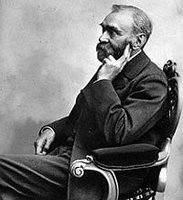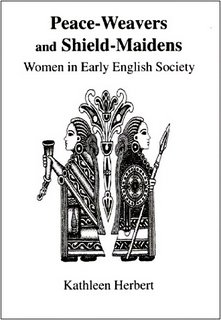
Dear Reader,
Prior to Serge Mouraviev's current project, there have only been a handful of serious efforts to collect together much of the Heraclitea. In general, scholars have been too busy advocating their interpretations of Heraclitus to be bothered with evaluating the whole field of prior interpretations. Likewise, few authors have bothered to review and evaluate even just the variant sources for the surviving fragments, to assess the discrepencies and try to understand what the original text may have been. Most translators have simply selected a trusted or favored collection, such as the Diels-Kranz collection, and assumed that their chosen collection adequately separates genuine Heraclitus fragments from spurious ones.
This is a dangerous assumption. With so few surviving fragments, many of which are so profound as to cast all of Heraclitus's philosophy in a different light, omitting even one genuine fragment can cause the translator or interpreter to misread everything.
I happen to have an example with which you may be familiar. Both Plutarch and Plato write that Heraclitus said you cannot step twice into the same river. This must be the best known Heraclitus quote, and for many of us it represents one of perhaps a half-dozen truly crucial keys to understanding his philosophy. If you accept this as a geniune Heraclitean quote, it changes everything about how you read Heraclitus.
For that reason, numerous scholars have labored to discredit it. If Heraclitus is a philosopher of universal flux, then he stands in opposition to Parmenides and Plato, who argued that only unchanging ideal forms are real and that all flux is illusory. To many, Plato is a sacred ox who must not be gored. Heraclitus's philosophy is too potent to ignore, so for Platonists Heraclitus must either be discredited or coopted.
For years the standard approach was to discredit him by arguing that he did indeed advocate universal flux, and that the idea of universal flux leads to such logical inconsistencies that his entire philosophy collapses in upon itself. The problem with this approach was that it is patently untrue, and philosophers and scholars free of the sway of neo-Platonism continued to explore the coherency of his philosophy.
In recent times, therefore, Heraclitus's opponents have changed tactics and tried to coopt him by a variety of devices, all of which hinge on demonstrating that universal flux is a misreading of Heraclitus, that perhaps after all he was a safe proto-Platonist. All such attempts have to deal with that river quote, along with its two friends. Here are all three along with their sources (I am using Charles H. Kahn's translations from
The Art and Thought of Heraclitus: An edition of the fragments with translation and commentary here, and can recommend his book to others readily, though Philip Wheelwright's
Heraclitus is my favorite interpretation):
First:
As they step into the same rivers, other and still other waters flow upon them. This is quoted by Arius Didymus, and also by Cleanthes, and most scholars accept it as a legitimate fragment of Heraclitus's writing.
Second:
According to Heraclitus one cannot step twice into the same river, nor can one grasp any mortal substance in a stable condition, but by the intensity and the rapidity of change it scatters and again gathers. Or rather, not again nor later but at the same time it forms and dissolves, and approaches and departs. This statement is from Plutarch and contains the most familiar form of the fragment, that
one cannot step twice into the same river. Although this is a paraphrase, it must be very close to Heraclitus's original form, because another paraphrase of the same idea, this one by Plato, uses the same wording:
Heraclitus says, doesn't he, that all things move on and nothing stands still, and comparing things to the stream of a river he said that you cannot step twice into the same river. Charles Kahn's analysis of these two independent yet converging paraphrases is compelling, i.e., that none of the attempts that have been made to make them go away carries anything like the strength of the evidence itself, that the convergence of these two separate but reliable sources almost certainly means Heraclitus wrote something very much like this.
The attempts by Kirk, Marcovich, Reinhardt, and others to argue that this most famous fragment of Heraclitus is merely a misquotation say less about the evidence than they do about the intentions of those making the attempt. Their arguments amount to little more than the a priori decision that Heraclitus would only have made one statement that mentioned a river, so they can reduce the discussion to arguing over which is the most authentic or the most clearly a literal quote. Since the second statement is a paraphrase, if a close one, they discard it in favor of the first one. Of course,
why there can only have been one statement about a river is passed over by these interpreters, since that assumption cannot bear scrutiny, and once one questions that the next question that comes to mind is why these commentators are so eager to get rid of two of the river statements. Given the profound, two thousand five hundred year history of hostility between the philosophers of change and the philosophers of permanence, it cannot be a coincidence that the form favored by these scholars is the one most compatible with a philosophy of permanence. Scholars like to pretend to objectivity, and for this reason they especially need their motivations scrutinized closely to understand the real import of their arguments.
Other scholars, not motivated by the age-old antagonism, may yet be misled by the fragmentary nature of Heraclitus's surviving text into believing the original was fragmentary as well, but we do have a couple of compound fragments. In those compound fragments we have from Heraclitus, we can see that he loved to juxtapose similar statements that clarified one another, especially if the second amplified or developed the paradoxes of the first, and these two statements fit that pattern very well. Kahn rightly argues that these first two statements most likely occurred together, one after the other, in Heraclitus's original text.
Before Plato, Cratylus amplified this second statement of Heraclitus's about the river with his own argument that you cannot even step in the river once, since you are changing even as you make the attempt. Although Kahn reads this as Cratylus seeking to one-up Heraclitus, I believe it was meant more as explanation, since it is an inescapable conclusion of Heraclitus's philosophy of dynamic flux if you fully come to grips with it. With Cratylus's statement in mind, consider this third statement about the river attributed to Heraclitus:
Third:
Into the same rivers we step and do not step, we are and we are not. This is quoted by a much later writer named Heraclitus Homericus, who wrote a commentary on Homer; that is, the later commentator Heraclitus Homericus is quoting the earlier philosopher Heraclitus, if we accept this as a genuine fragment. The later Roman writer Seneca also quotes this line as the philosopher Heraclitus's. Scholars tend to agree that Seneca and Heraclitus Homericus were quoting a common source, but disagree about whether that source was the philosopher Heraclitus or perhaps some later writer, possibly a skeptic. For example, despite Kahn's position that those discounting the second statement are defying the evidence, three seems to exceed Kahn's own limit, for he argues that this third form is not authentic, despite reasonable sources. His argument: he "can only see it as a thinly disguised paraphrase" of other fragments. That's it. No careful evaluation, no additional evidence not available to the reader, just a strong feeling based on its resemblance. Ironically, this is the same reasoning in Kirk, Marcovich, and Reinhardt that he earlier dismissed, rightly, as flawed.
How can Kahn fall prey to the same reasoning himself that he so clearly identifies and refutes in others, and on the same subject? Even a casual reading of Kahn reveals he lacks the motivation of the others to miscast Heraclitus as agreeing with Parmenides and Plato about the unchanging nature of the true cosmos; after all, he is quite careful about showing the many ways Heraclitus exhorts us to see flux as the true nature of the cosmos. We cannot really know, but a reasonable guess would be that most common of human failings that afflicts us all, fools and wise men alike: hubris, in this case the temptation to mold the material with unwarranted confidence, to feel that even without access to the original text he nevertheless
knows its character so well that he can feel his way to the truth. Unfortunately, if this is the case, and he gives us no reason to doubt it, then he like so many others has forgotten that we all
know things that are not true, and so we should beware such confidence.
All we have of Heraclitus are fragments attested by later writers. We must tread very cautiously, ruling out possibilities with the humble recognition that we have not one original scrap of his book with which to make a definitive statement. We must resort to that proper default position of the natural philosopher in the face of the cosmos, humility, the acceptance of the limitations of our own reason, and consequently the need to become comfortable with uncertainty. If the only defensible criteria we have for choosing legitimate fragments are 1) the reliability of the sources, and 2) the consistency with the style and content of other fragments accepted as legitimate, then we have to accept this third fragment, however tentatively as legitimate, no matter how we may feel about it or how clever an argument we may construct about it. Kahn's failure to define his criteria and stick to them, left him making judgments based on how they, in his own words, "seem to me," which is ironically precisely the translation of the Greek expression
doke moi, origin of the term
doxa, which the Greek philosophers including Heraclitus defined as the uninformed, unphilosophical, unreliable opinions of the masses; they held
doxa in the utmost contempt, which is why they became philosophers.
As a development of the previous two statements, this third one shifts the emphasis from the flux of things to the paradoxical nature of things in flux, a necessary development of the explanation, especially to Heraclitus whose writing thrives on paradoxes. He implicitly argues repeatedly throughout his writings that the mathematician's aversion to paradoxes is perverse in a cosmos that teems with natural paradoxes. Indeed, he argues that the cosmos can only be understood through layers of paradox, both in the contradictory forces that bring about the phenomena we perceive, and in the paradoxical resulting nature of things. After all, if you are continuously changing, as science would agree, then you both are the same person from one moment to the next and also are not exactly the same person. Likewise the river into which you step changes and becomes different, even as it remains identifiably the same. Identity, according to Heraclitus, is a paradox, and this third statement is completely in keeping with his emphasis on paradox, making it a fitting conclusion to the argument developed by the first two statements, whether or not they originally appeared in that order.
All of which is to say I agree with Kahn in accepting the validity of the second statement, and I disagree with him by accepting, however tentatively, the third as well. I see no good reason to doubt that Heraclitus wrote all three statements and placed them closely together to illustrate the nature of our relationship to the cosmos when both it and we as part of it are in endless flux. Although he has a reputation for being obscure, in the few compound fragments we have and in the other potential ones we might try to reconstruct by rearranging closely related fragments Heraclitus does appear to make some effort to explain his ideas through metaphor and development rather than restricting himself to the most pithy, paradoxical possible formulations of these concepts.
After all, later in the same dialogue in which Plato paraphrases Heraclitus's second statement, he adds another paraphrase:
panta rhei, that is,
all things flow. This is the most succinct form of this thread of Heraclitus's teachings, and all three river statements, as well as Cratylus's extension, are inevitable implications of this two-word explosive nugget of wisdom. Had Heraclitus been the obscurantist he is reputed to be, he would have left it at that, but instead in the image of the river he worked out a reasonable metaphor for explaining the flow of change. These three river statements by Heraclitus are therefore not problems to be avoided but opportunities to more fully comprehend the profound and vital nuance of his philosophy.
Returning to the subject of hubris, if you conduct a few careful web searches for variations on the famous "You cannot step twice into the same river" statement, you will find truckloads of authors declaring with great confidence that smart people know Heraclitus never actually wrote this. They ape the empty reasoning of Marcovich and others on this subject without actually working out even so little on their own, yet present their "conclusion" with authority. Here again, as in so many other ways, humans display their love of appearing wise without working for wisdom, of pretending to authority they do not possess, of attracting followers they can not lead, of simultaneously casting themselves as unusually observant and independent-minded when they are instead typically blind and prone to follow the lead of others unquestioningly. As Heraclitus argued, most people do not know why they want the things they want, nor why they believe the things they believe, and you certainly cannot trust them to tell you those things accurately. Even the most seemingly objective and rational person builds his arguments as mere rationalizations of his prejudices and urges.
Critics of the World Wide Web decry its lack of quality control, but the information you can observe about human nature on the web is worth all the misinformation about lesser topics. Here are all these people laboring to miscast Heraclitus as not fundamentally in conflict with Parmenides and Plato, and most of them clearly do not even realize what the larger conflict is about or what the implications might be of their position. Truly, most of what people do with their brains should not be called thinking, and most of what is written does not qualify as communication. This is part of makes Heraclitus and his work so remarkable, and also part of what makes Serge Mouraviev's
Heraclitea project so welcome and necessary.
Yours truly,
Rick









